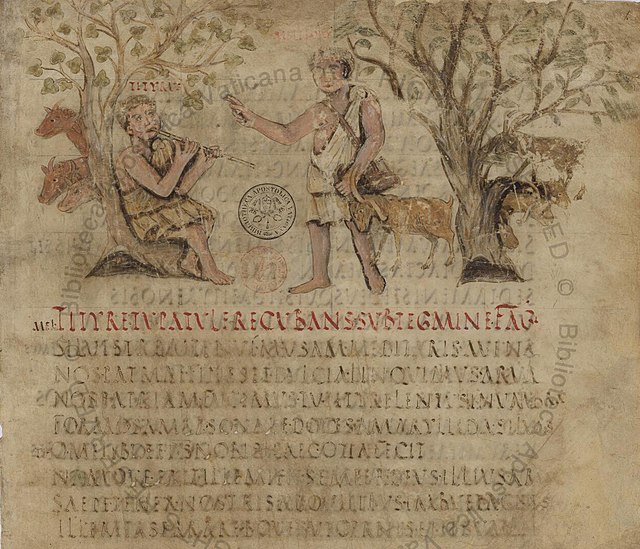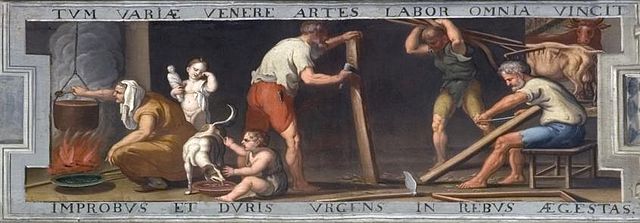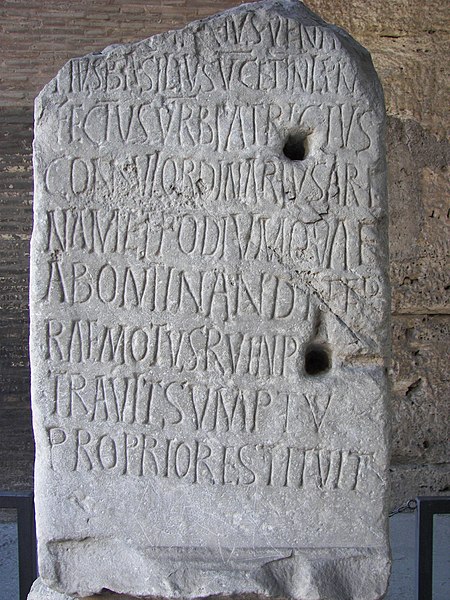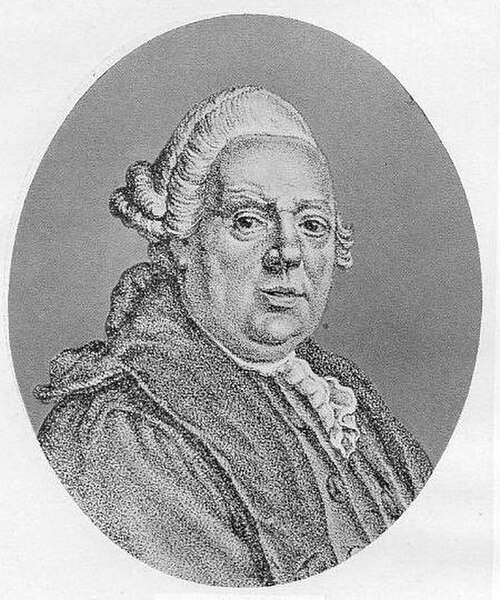Publius Vergilius Maro, usually called Virgil or Vergil in English, was an ancient Roman poet of the Augustan period. He composed three of the most famous poems in Latin literature: the Eclogues, the Georgics, and the epic Aeneid. A number of minor poems, collected in the Appendix Vergiliana, were attributed to him in ancient times, but modern scholars consider his authorship of these poems to be dubious.
Modern bust of Virgil at the entrance to his crypt in Naples
Page from the beginning of the Eclogues in the 5th-century Vergilius Romanus
Horace, Virgil and Varius at the house of Maecenas, by Charles Jalabert.
Late 17th-century illustration of a passage from the Georgics, by Jerzy Siemiginowski-Eleuter.
Classical Latin is the form of Literary Latin recognized as a literary standard by writers of the late Roman Republic and early Roman Empire. It formed parallel to Vulgar Latin around 75 BC out of Old Latin, and developed by the 3rd century AD into Late Latin. In some later periods, the former was regarded as good or proper Latin; the latter as debased, degenerate, or corrupted. The word Latin is now understood by default to mean "Classical Latin"; for example, modern Latin textbooks almost exclusively teach Classical Latin.
Latin inscription in the Colosseum
David Ruhnken
Wilhelm Sigismund Teuffel
At Maecenas' Reception, oil, Stefan Bakałowicz, 1890. An artist's view of the classical. Maecenas knew and entertained everyone literary in the Golden Age, especially Augustus.








